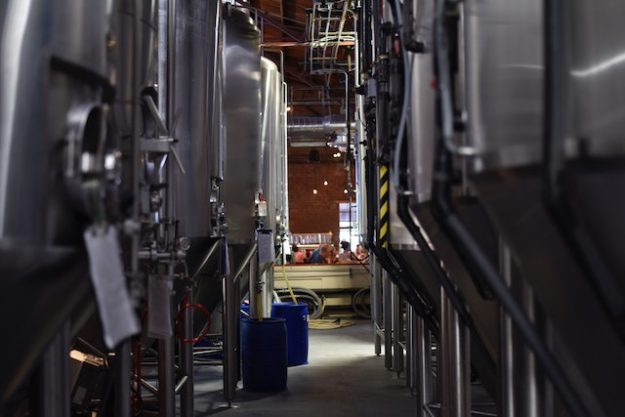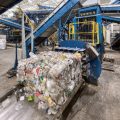The business case for embracing sustainable manufacturing is clear: manufacturers can cut costs, reduce risks and improve their reputations by taking steps toward greener production.
This study aims to compile an overview of the barriers and enablers encountered by manufacturing SMEs when adopting sustainable practices. This overview differs from existing ones in classifying the walls and identifying what enablers could mitigate them.
Invest in Technology
Manufacturers must take a holistic approach encompassing economic and environmental factors when considering new technologies. This will require them to invest in technology that can conserve energy, reduce waste and eliminate pollution. However, this is a challenge that engineers in the manufacturing industry are already stepping up to. For example, Foundry recently discussed how BMW aims to keep its CO2 emissions low throughout the entire manufacturing process of hybrid and electric vehicles.
Moreover, manufacturers should also invest in technology that can provide real-time and predictive data to optimize their operations for sustainability. This will help them improve the efficiency of their plants and enable them to make better decisions more sustainably.
The study identified several barriers that inhibit SMEs' adoption of sustainable practices. The researchers also identified several enablers that have the potential to mitigate these barriers. They are presented in Table 3 alongside the identified barriers, with those enablers that can mitigate a particular wall indicated by an asterisk (*). These enablers include reducing the costs of green technologies, improving product design, creating a positive image, and promoting green business policies.
Reduce Waste
Using cheaper materials, automating production processes, and improving product design are just a few ways that manufacturers can reduce waste. Companies should take the time to examine their operations and determine if there are any areas where they can cut costs without compromising quality or safety.
By reducing their waste, companies can save money while preserving the environment. In addition, many consumers are increasingly interested in sustainable products, so reducing waste can help to boost customer satisfaction and brand reputation.
This study aimed to identify barriers and enablers for adopting sustainable manufacturing by manufacturing SMEs. The authors identified the key barriers, compared them to the possible enablers that could mitigate them, and highlighted those expected to impact specific obstacles more than others significantly. This is illustrated in Table 3, which presents the mapped barriers alongside the enablers expected to have the most significant mitigating effect. These enablers are categorized as either I or E.
Improve Product Design
Using recycled materials and designing products that can be disassembled and repurposed are great ways to reduce energy consumption. Similarly, making your production processes more efficient will help to reduce waste and pollution.
The global community is becoming more aware of the need to implement sustainable manufacturing practices. In doing so, companies can improve their corporate image and gain access to new markets while also helping to protect the environment. However, the process of implementing sustainable manufacturing practices can be challenging.
Despite the importance of sustainable manufacturing, the literature on barriers and enablers that SMEs may face when implementing sustainable practices is scarce. This study systematically reviews the barriers and enablers for sustainable manufacturing in manufacturing SMEs from a triple-bottom-line perspective to fill this gap. The search was conducted in the Scopus database, a large multidisciplinary bibliographic database of peer-reviewed articles. Eligible papers were analyzed using descriptive statistics and factor analysis to identify key barriers and enablers. Data was then stored in a Microsoft Excel matrix. The final sample of 32 papers included conceptual and empirical research addressing barriers and enablers to sustainable manufacturing in manufacturing SMEs.
Reduce Energy Consumption
The good news is that industrial manufacturers can significantly reduce energy consumption – and greenhouse gas emissions to combat climate change – by optimizing operations, improving efficiency, and upgrading their plant floor technologies. Moreover, implementing a continuous improvement framework like Operational Excellence through a performance management system can help drive measurable, sustainable product creation outcomes and reduce costs.
Manufacturers can also take advantage of renewable energy, as it is becoming cheaper and more available at various price points. Alternatively, they can use existing technology to capture the heat energy generally wasted during manufacturing processes and reuse it as electricity. Regular equipment maintenance is another great way to reduce energy consumption by ensuring machines run efficiently.
Finally, manufacturers must develop a comprehensive approach to addressing sustainability challenges by working across business units and supply chains. This will help ensure all stakeholders are aligned around environmental and economic goals. It will also enable companies to implement new energy efficiency initiatives more effectively. In addition, it will facilitate the sharing of best practices and provide visibility into scope-3 emissions.
Optimize Operations
Sustainable manufacturing focuses on managing operations in an environmentally and socially responsible manner. This includes minimizing waste, reducing energy consumption, and minimizing the impact that manufacturing has on natural resources such as water and soil.
Increasingly eco-conscious consumers are driving manufacturers to adopt more sustainable practices. This doesn't just help to protect the environment – it can also save production costs, increase business resilience, improve agility, and accelerate growth.
It is essential to understand that sustainable manufacturing is not a one-off process but an ongoing journey. Once a company has taken steps to reduce its environmental impact, it should continuously monitor and improve its performance.
Previous research has defined barriers and enablers to adopting sustainable manufacturing in SMEs. These can be internal or external, with the former referring to those factors that originate within an organization and are, therefore, directly controllable by it. The latter refers to those factors that are outside of an organization but that could have a positive effect on its sustainability performance. The table below lists the identified barriers and shows what enablers may mitigate them.












